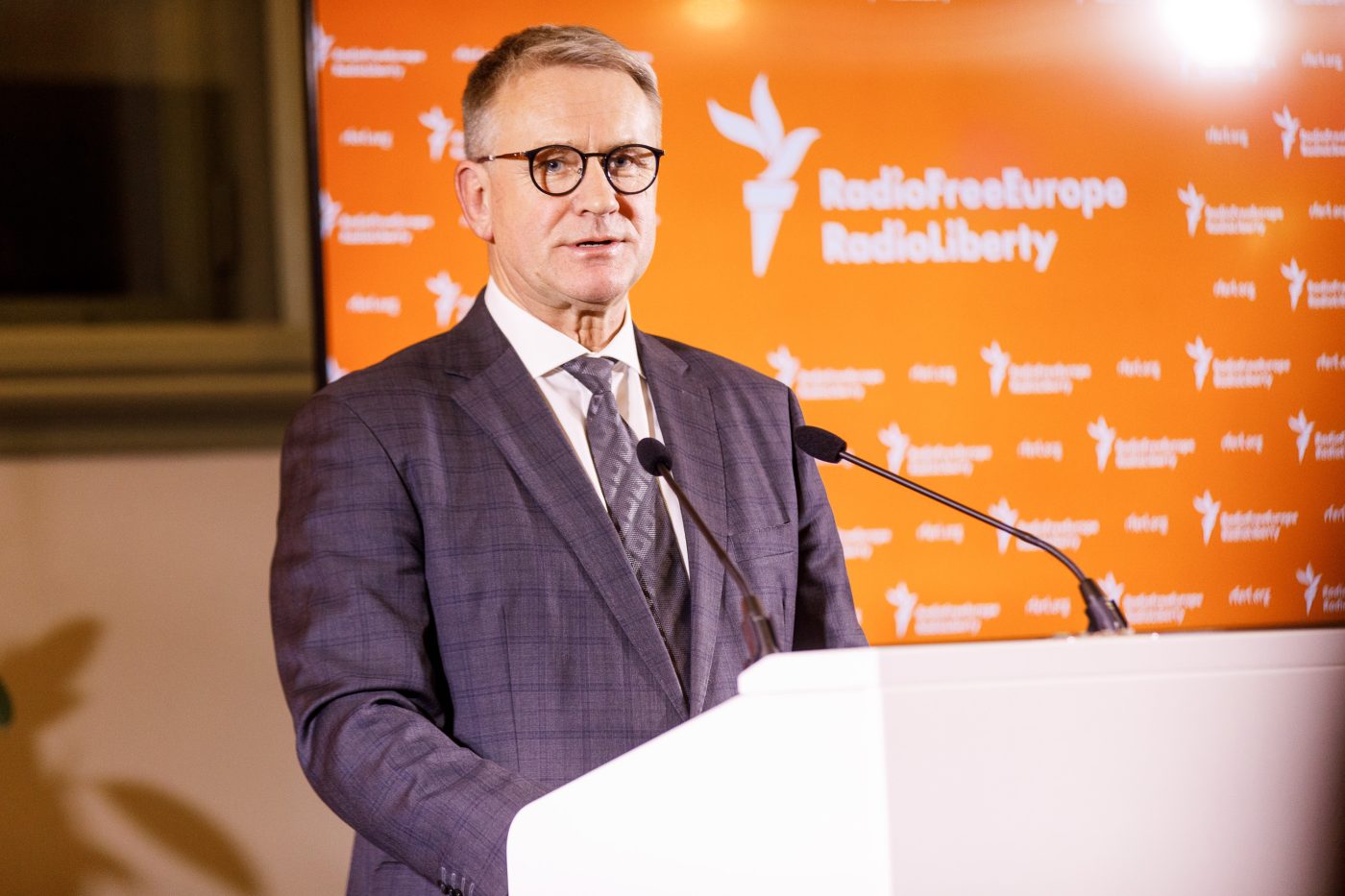Radio Free Europe/Radio Liberty opened its new bureau in Riga on 12 January, with the goal of countering Kremlin disinformation for Russian-speaking audiences. The opening ceremony was attended by Latvian officials welcoming RFE/RL to its new home. Its primary audience, President and CEO Jamie Fly said in his interview with Latvian TV, are the people of Russia.
Not all broadcasters aiming to provide journalistic alternatives to Kremlin propaganda have found common ground with Latvian public authorities. Not a month has passed since the opposition channel TV Rain (Dozhd), which moved production to Riga after Russia’s full-scale invasion of Ukraine last year, had its license canceled by the Latvian media watchdog NEPLP.
This move marked the end of Latvia’s honeymoon with Russian opposition media. Clearly, Latvia, which also hosts the NATO Strategic Communication Centre of Excellence, is continuing to counter Kremlin narratives. Yet its relationship with exiled Russian opposition journalists and their media outlets has become increasingly fraught.
The case of TV Rain encapsulates much of the tension. Seemingly technical issues like failing to provide Latvian subtitles to Russian-language broadcasting were seen by parts of Latvian society, and by many politicians, as demonstrating a lack of respect. More political faux pas followed when TV Rain showed a map of Russia that included Crimea. The last straw was a TV host referring to the Russian army as “our army.”
While TV Rain journalists possibly sought to connect with their Russia-based audiences, the view from Riga has been that they too often show a lack of sensitivity for the self-esteem of the host society, which has suffered enough under the Soviets.
This has been a case of highly entrenched and conflicting worldviews, with one side (including the right-wing National Alliance, but also former long-time minister of defense, Artis Pabriks) referring to the journalists as unreconstructed Russian imperialists, and the other seeing Latvian authorities as petty bureaucrats whose nationalism blinds them to the historic mission of Russian opposition media. The commentary of other exiled media figures, supporting TV Rain, has been very critical of Latvian authorities and their decision – thus, the popular YouTube journalist Ilya Varlamov in his weekly news digest said that “perhaps Latvia will manage what Putin has not managed in 10 years – to shut down TV Rain.” International media organizations, such as Reporters Without Borders (RSF), also criticized the Latvian decision.
While TV Rain has now received a broadcasting permit in the Netherlands, other independent media, such as Meduza, and several Russian-language outlets of international media including the BBC and Deutsche Welle, remain in Latvia, which for the time being still has the highest concentration of opposition media. Lithuania is another popular location, not only for Belarusians, which has strong historic ties with the country but also for Russians — thus, jailed opposition leader Alexei Navalny’s team set up its YouTube channel, Popular Politics, in Vilnius.
Even before the war, one of Navalny’s closest associates, Leonid Volkov (wanted in Russia on fabricated criminal charges), was living in Vilnius and frequented other Baltic States. Another major opposition politician, Vladimir Kara-Murza, currently in arbitrary detention in Russia, had strong ties with Latvia before the war and visited several times, receiving a warm reception at the Latvian Parliament. Even Estonia, the most reserved of the three countries when it comes to hosting Russian exiles, has become home to some famous figures, such as the art critic Artemy Troitsky.
This has not been a happy experience for Russian opposition media or for Latvia. But it must be understood that this is a rare conflict. Despite the periodic tensions and diverging narratives, the exile experience in the Baltics has contributed to the dialogue between Baltic and Russian cultures at a time of maximum antagonism caused by Putin’s aggression in Ukraine. Joint civil society initiatives against the war and in support of Ukrainian refugees, joint art projects, new bookshops, and film festivals bear witness to the creative potential of the exile encounters.
The popular singer-songwriter Noize MC (Ivan Alekseyev), who left Russia after the start of the war and settled in Vilnius, offers a glimpse at the process of critical reflection going on in his community. In his recent song, “The Land of Rains”, he first mimics the criticisms some exiles encounter in the Baltics (Why didn’t you fight the National Guard and their Kalashnikovs with your bare hands?) before making a bold statement that in the Land of Rains (his poetic epithet for the Baltics) he will stage a new life for himself after the old one was “crossed out by the letter Z.”
Marija Golubeva is a Latvian politician, political scientist, and historian. She served as the Minister of the Interior of Latvia and as a member of the Latvian Parliament (2018-2022.) She has been also active as a public policy researcher and international consultant.
Europe’s Edge is CEPA’s online journal covering critical topics on the foreign policy docket across Europe and North America. All opinions are those of the author and do not necessarily represent the position or views of the institutions they represent or the Center for European Policy Analysis.





